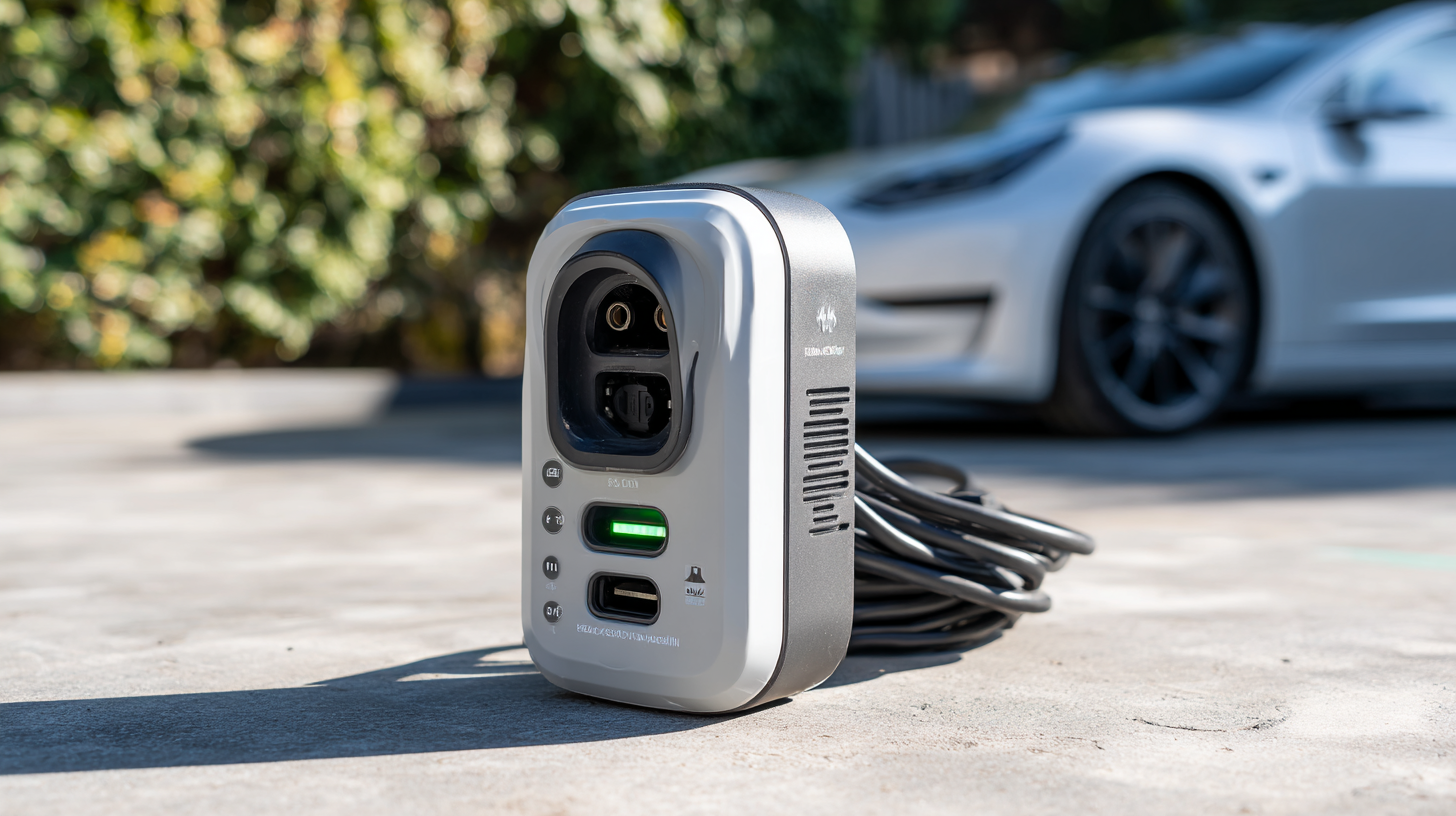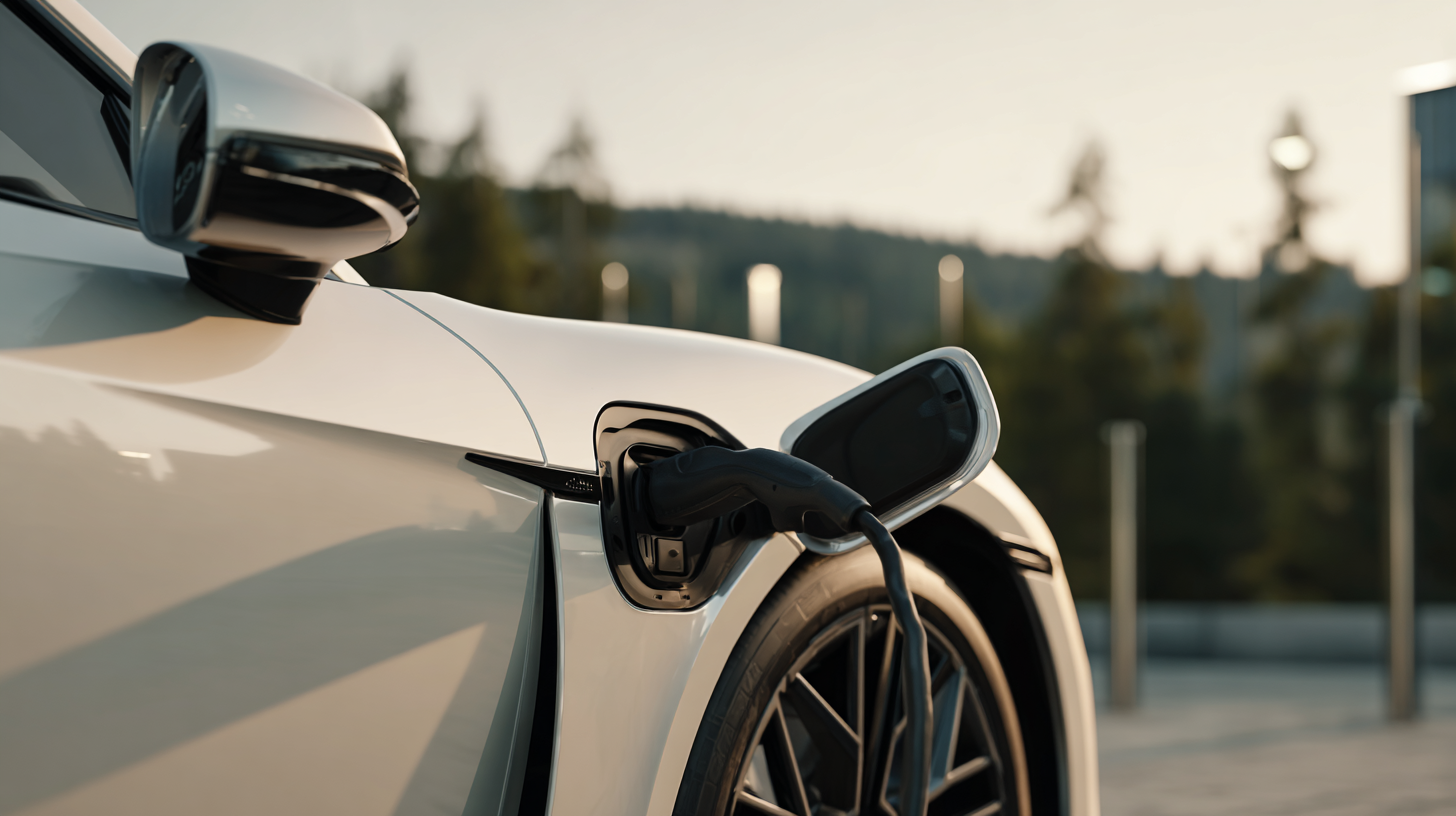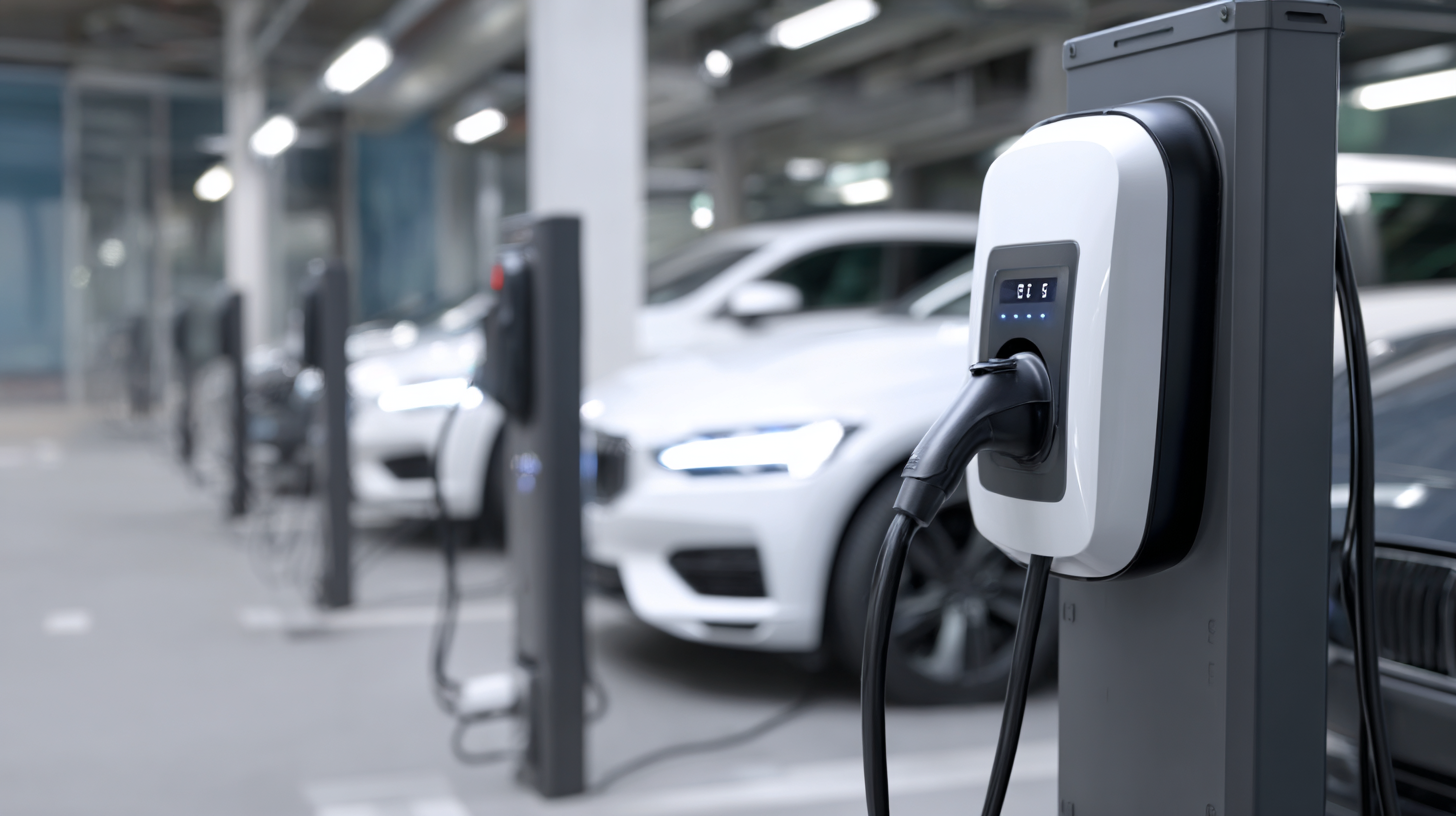As electric vehicles (EVs) proliferate, the demand for efficient and innovative EV charger AC adapters is becoming increasingly critical. According to a recent industry report by McKinsey, the global EV market is expected to reach 145 million units by 2030, leading to a significant surge in charging infrastructure requirements. With advancements in technology, the design and functionality of EV charger AC adapters are evolving to meet the varying needs of consumers and fleet operators alike. By 2025, the integration of smart charging solutions and enhanced compatibility features will be paramount in optimizing charging times and efficiency. This comprehensive guide explores the best AC adapters on the market, emphasizing top strategies for harnessing the latest innovations while catering to the growing demand for reliable and effective charging solutions.

As we advance toward a greener future, the evolution of electric vehicle (EV) charging technologies is becoming increasingly vital. By 2025, we can anticipate a wave of innovations that will enhance the efficiency, accessibility, and sustainability of EV charging. Smart charging stations, equipped with AI technology, are expected to optimize energy usage, reduce costs, and improve the overall user experience. These advancements will not only cater to individual consumers but also support businesses looking to transition to electric fleets.
To maximize the benefits of emerging charging technologies, consider investing in compatible home charging systems early on. Look for AC adapters that offer fast-charging capabilities and smart features, such as scheduling and energy monitoring. Additionally, staying informed about local charging infrastructure developments can help you identify convenient charging locations and their availability as the market expands.
Finally, as the demand for EVs grows, so will the need for sustainable energy sources. Homeowners should explore options such as solar panels that can power their charging stations. This not only reduces dependence on the grid but also promotes eco-friendly practices, aligning with the overall goal of a sustainable transportation future.
As the electric vehicle (EV) market continues to grow, selecting the right AC adapter is crucial for ensuring optimal charging efficiency. When considering an AC adapter, one of the essential features to look for is compatibility. The adapter should support a wide range of EV models, allowing for flexibility as your vehicle options expand. Additionally, it is beneficial to choose an adapter that offers multiple charging power outputs. This versatility not only caters to different vehicle needs but also enables faster charging times for those busy days.
Another key feature to consider is safety and reliability. Premium AC adapters come equipped with advanced safety mechanisms, such as surge protection and thermal management. These features are vital in preventing overheating and electrical faults during charging sessions, providing peace of mind. Furthermore, built-in diagnostics can alert users to potential issues, ensuring the adapter remains in optimal working condition. By keeping these essential features in mind, EV owners can make informed choices that enhance their charging experience and promote longer battery life.
As the electric vehicle (EV) sector surges forward, understanding the regulatory frameworks surrounding charging infrastructure becomes increasingly crucial for manufacturers and consumers alike. With the Bureau of Indian Standards (BIS) introducing new EV safety standards, companies entering the Indian market must adhere to these criteria to ensure compliance and maintain product integrity. The BIS certification process requires a thorough understanding of regulated sectors and extensive documentation, which can be daunting for foreign manufacturers but is vital for ensuring safety and quality in the rapidly evolving EV landscape.
Recent data indicates that by 2025, India aims to significantly ramp up its electric vehicle production and charging solutions, fueled by initiatives like Make in India. Electric vehicle registrations in India are projected to reach 10 million by 2025, while the demand for efficient and safe AC adapters is anticipated to rise correspondingly. As the industry adopts smart functionality regulations for charging points—allowing vehicles to charge during off-peak hours—companies must ensure that their products meet these standards not only for market entry but also for facilitating sustainable energy use within the growing EV ecosystem. In this dynamic environment, staying informed about certification requirements is essential for tapping into the burgeoning opportunities within the EV market.

Setting up an electric vehicle (EV) charging station at home is becoming increasingly important as more drivers shift to electric mobility. According to the International Energy Agency (IEA), the global stock of electric cars reached over 10 million in 2020, a figure that is expected to soar as we approach 2025, making home charging a necessity. The process of installing a home charging station can be straightforward, especially with the right knowledge and tools.
To begin with, you should assess your home’s electrical capacity and determine whether you need to upgrade your existing wiring. It’s recommended to consult a licensed electrician, as they can help determine the best charging solution based on your EV model's requirements and the power output of different AC adapters available in the market. Data from the U.S. Department of Energy indicates that a Level 2 charger can provide around 25 miles of range per hour of charging, making it a preferred choice for many homeowners.
Next, choose a suitable location for your charger—ideally, it should be near your parking space while also being protected from environmental factors. Installing a dedicated circuit for your EV charger is essential to ensure safety and efficiency. As you set up, you can also explore smart charging options which allow you to optimize charging times and reduce costs. According to a recent report by BloombergNEF, EV charging infrastructure investment is projected to reach $70 billion by 2025, underscoring the growing emphasis on accessible and effective home charging solutions.

As electric vehicles (EVs) continue to grow in popularity, the demand for efficient and reliable AC adapters is more pressing than ever. In 2025, we will likely see significant advancements in charging technology, with an emphasis on higher efficiency and user-friendly features. Leading manufacturers are investing heavily in R&D to provide adapters that not only charge EVs faster but also integrate seamlessly with smart home systems. This comparative review highlights the best AC adapters available, focusing on their performance, build quality, and unique functionalities.
One standout model is the ultra-fast charging adapter from a prominent EV manufacturer, which boasts a compact design and a user-friendly app for monitoring charging progress. Additionally, eco-conscious consumers will appreciate adapters that utilize sustainable materials and offer energy-saving features. Other noteworthy contenders include adapters equipped with built-in safety mechanisms and compatibility with various EV models, ensuring that users can charge their vehicles safely and efficiently. By 2025, the landscape of EV charging will not only enhance convenience for drivers but also support broader environmental goals through innovative sustainable practices.
| Adapter Type | Power Output (kW) | Charging Time (hrs) | Connector Type | Smart Features | Price Range |
|---|---|---|---|---|---|
| Portable AC Adapter | 7.2 | 6-8 | Type 1 | App Control | $400 - $600 |
| Wall-Mounted AC Adapter | 11 | 4-6 | Type 2 | Smart Scheduling | $800 - $1200 |
| Fast AC Adapter | 22 | 1-2 | Type 2 | Dynamic Load Management | $1500 - $2500 |
| Home Charging Station | 7.2 | 6-8 | Type 2 | Energy Monitoring | $600 - $900 |
| Commercial AC Charger | 22 | 1-2 | CCS | Grid Interaction | $2500 - $4000 |








